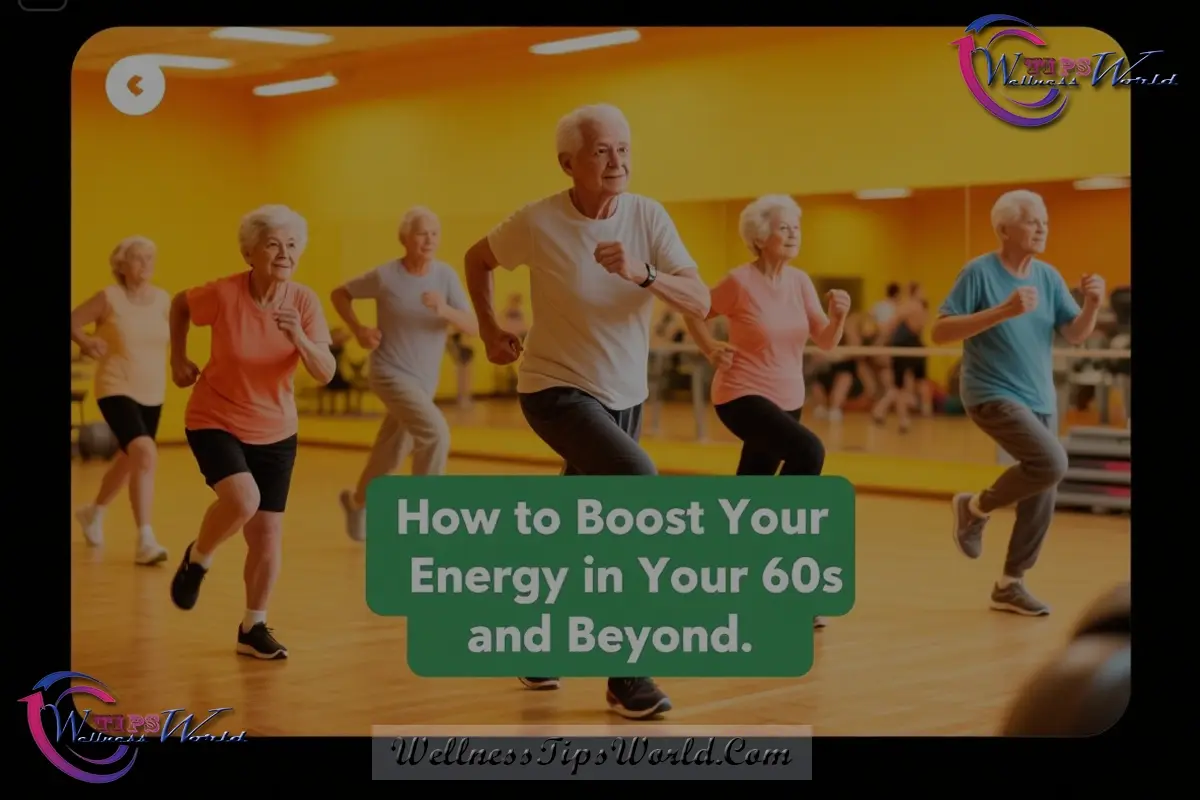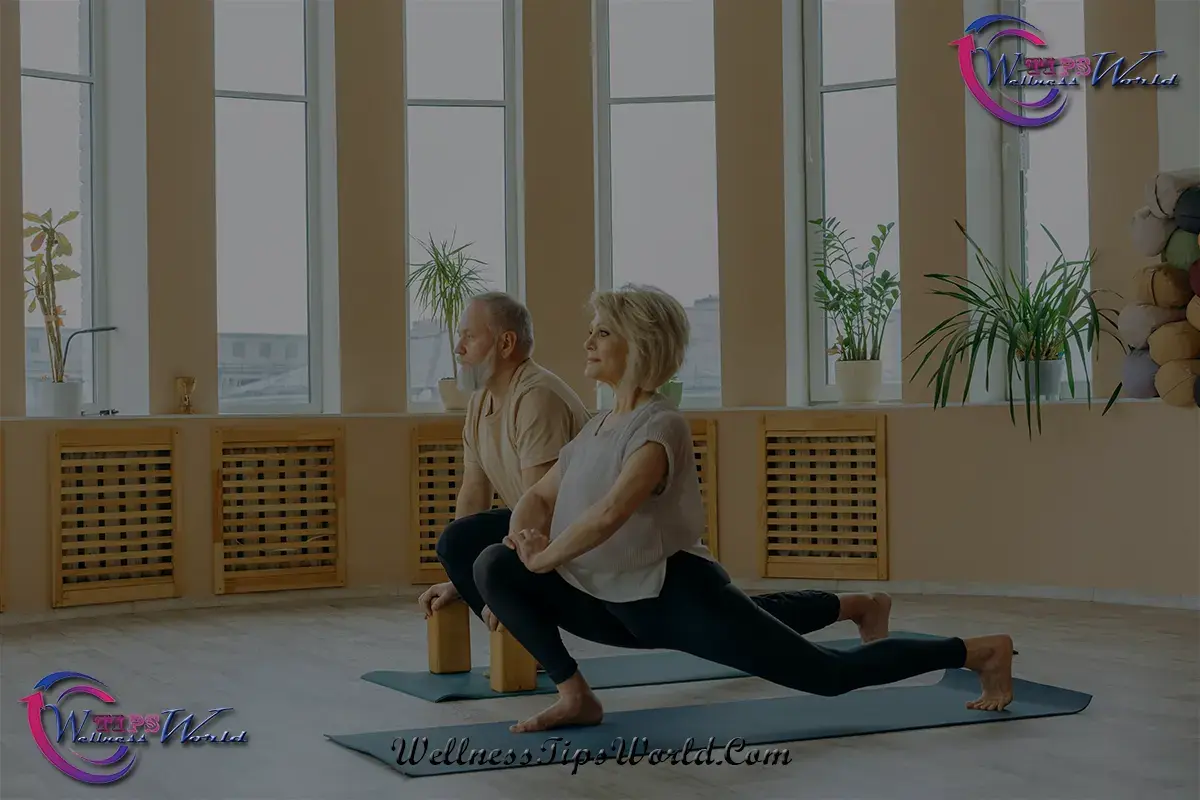How to Boost Your Energy in Your 60s and Beyond
-
56
- 04 Aug, 2025

As we age, many of us notice that our energy levels aren't what they used to be. In our 60s and beyond, it can feel like getting through the day without exhaustion is a challenge. However, it’s possible to boost energy and maintain an active, fulfilling lifestyle even in later years. By making strategic changes to your routine and habits, you can experience more vitality and enthusiasm, regardless of your age.
In this article, we will discuss practical, science-backed ways to boost your energy after 60. Whether you want to stay active, reduce fatigue, or simply feel more vibrant every day, these tips can help you achieve that.
What You Will Learn
- The importance of nutrition for maintaining energy levels.
- The best exercise routines to improve strength and stamina.
- The role of sleep and stress management in sustaining energy.
- How to adjust your lifestyle and mindset for maximum vitality.
By implementing these strategies, you’ll be on your way to enjoying more energy, fewer naps, and a more active lifestyle.
Understanding the Challenge of Aging and Energy Loss
As we age, several factors contribute to lower energy levels, including:
- Slower metabolism: With age, the body’s ability to burn calories efficiently slows down.
- Hormonal changes: A drop in hormones like estrogen and testosterone can lead to feelings of fatigue.
- Reduced muscle mass: Loss of muscle can decrease overall strength and endurance, making daily tasks feel more taxing.
- Poor sleep quality: Older adults often experience more fragmented sleep, which impacts energy levels.
- Health conditions: Chronic diseases such as diabetes, heart disease, and arthritis can drain energy.
Understanding these changes is key to combating them. By addressing the factors contributing to fatigue, you can increase your overall energy and feel more vibrant.
1. Prioritize Nutrient-Dense Foods
The food you eat plays a major role in maintaining energy levels. To stay energized in your 60s and beyond, focus on a balanced, nutrient-dense diet that includes:
Eat a Variety of Nutrient-Rich Foods
Embrace a vibrant variety of nutrient-dense foods in your meals—load up on fresh fruits and veggies, choose whole grains, enjoy lean protein sources, and incorporate healthy fats to nourish your body from the inside out. Superfoods such as leafy greens, berries, nuts, seeds, and fatty fish are great sources of antioxidants, vitamins, and minerals that support energy production.
Stay Hydrated
Dehydration is a common cause of fatigue, so it’s important to drink plenty of water throughout the day. Aim for 8 glasses of water per day, or more if you’re active or in a hot climate.
Limit Processed Foods
Foods high in sugar and refined carbs can cause blood sugar spikes and crashes, leading to energy dips. Limit processed snacks, sugary drinks, and fast food, and instead focus on whole, nutrient-dense meals.
Key Nutrients for Energy:
- Iron: Found in spinach, beans, and red meat, iron helps prevent fatigue.
- Magnesium: This mineral helps with muscle function and reduces tiredness. Foods like almonds, spinach, and bananas are excellent sources.
- B Vitamins: Essential for energy metabolism, these can be found in whole grains, eggs, and lean meats.
2. Exercise Regularly to Improve Stamina and Strength
Regular physical activity is one of the most effective ways to boost your energy and maintain your strength as you age. Even moderate exercise can make a significant difference in your vitality.
Start with Low-Impact Activities
If you’re just starting out, focus on low-impact exercises that are easier on your joints, such as walking, swimming, or cycling. These activities increase blood flow and help you build stamina without overwhelming your body.
Strength Training for Muscle Maintenance
Strength training is especially important for older adults because it helps counteract muscle loss. Aim for two to three strength training sessions a week using light weights or resistance bands to build muscle mass and support mobility.
Incorporate Balance and Flexibility Exercises
Improving your balance and flexibility can reduce your risk of falls and injury. Incorporate practices such as yoga or tai chi, which help increase flexibility, stability, and relaxation.
Consistency is Key
Even 20-30 minutes of exercise a day can improve your energy levels. Gradually increase intensity or duration as your fitness level improves.
3. Prioritize Sleep and Rest
Sleep plays a crucial role in restoring your body and replenishing energy levels. As we age, sleep patterns can change, but it’s important to prioritize restful sleep.
Establish a Consistent Sleep Routine
Aim for 7-9 hours of sleep each night. Try to go to bed and wake up at the same time each day, even on weekends, to help regulate your body’s natural sleep-wake cycle.
Create a Sleep-Friendly Environment
Make your bedroom a peaceful, relaxing space. Create an ideal sleep environment by keeping the room cool, dimly lit, and peaceful. Don’t forget to invest in a supportive mattress and pillows for ultimate comfort. Avoid using electronics or drinking caffeine before bed, as these can interfere with sleep.
Address Sleep Disorders
Many older adults suffer from sleep disorders like sleep apnea or insomnia, which can affect energy levels. If you have trouble sleeping, consider speaking to your doctor about potential solutions.
4. Manage Stress and Mental Health
Stress and mental health issues can significantly drain your energy. Chronic stress can disrupt your sleep and lead to fatigue, while anxiety and depression can rob you of the motivation and zest for life.
Practice Relaxation Techniques
Incorporating relaxation practices such as meditation, deep breathing, or mindfulness can help reduce stress and improve your emotional well-being. Even just 10 minutes of meditation a day can boost your mood and energy levels.
Socialize and Stay Connected
Staying socially engaged with friends, family, and community members is not only good for your mental health but also your energy. A strong social network provides emotional support and helps reduce feelings of isolation, which can lead to fatigue.
Seek Professional Help if Needed
If you feel persistently low on energy or find yourself struggling with feelings of sadness or hopelessness, it’s important to talk to a doctor or mental health professional. Therapy and counseling can help you address any underlying issues affecting your energy.
5. Supplement Wisely
While a balanced diet should provide most of the nutrients you need, certain supplements may help boost energy in your 60s and beyond. Always consult with your healthcare provider before adding any supplements to your routine.
Vitamin D
Vitamin D is essential for bone health and overall energy levels. As we age, the body’s ability to produce vitamin D decreases, so supplementation may be necessary, especially if you don’t get enough sun exposure.
Coenzyme Q10 (CoQ10)
CoQ10 is a powerful antioxidant that supports energy production at the cellular level. Supplementing with CoQ10 may help boost energy and reduce feelings of fatigue.
Omega-3 Fatty Acids
Omega-3 fatty acids, found in fish oil or flaxseed, can help reduce inflammation and improve cardiovascular health, both of which contribute to sustained energy levels.
Empower Yourself with Energy
In your 60s and beyond, maintaining energy levels is a multifaceted endeavor that requires attention to nutrition, exercise, sleep, stress, and mental health. By following these strategies—eating a nutrient-rich diet, exercising regularly, prioritizing sleep, managing stress, and considering supplements—you can feel more energetic, motivated, and engaged with life.
Remember, small changes can make a big difference. Whether you’re looking to increase your physical activity, improve your diet, or get better rest, each step will help you reclaim the energy you need to thrive.
By focusing on holistic well-being and taking proactive steps to support your health, you can continue to live an active and fulfilling life well into your later years.
By incorporating these simple yet effective strategies, you can maintain vitality, reduce fatigue, and stay energized long into your 60s and beyond. Take charge of your energy today and embrace the vibrant life you deserve!










